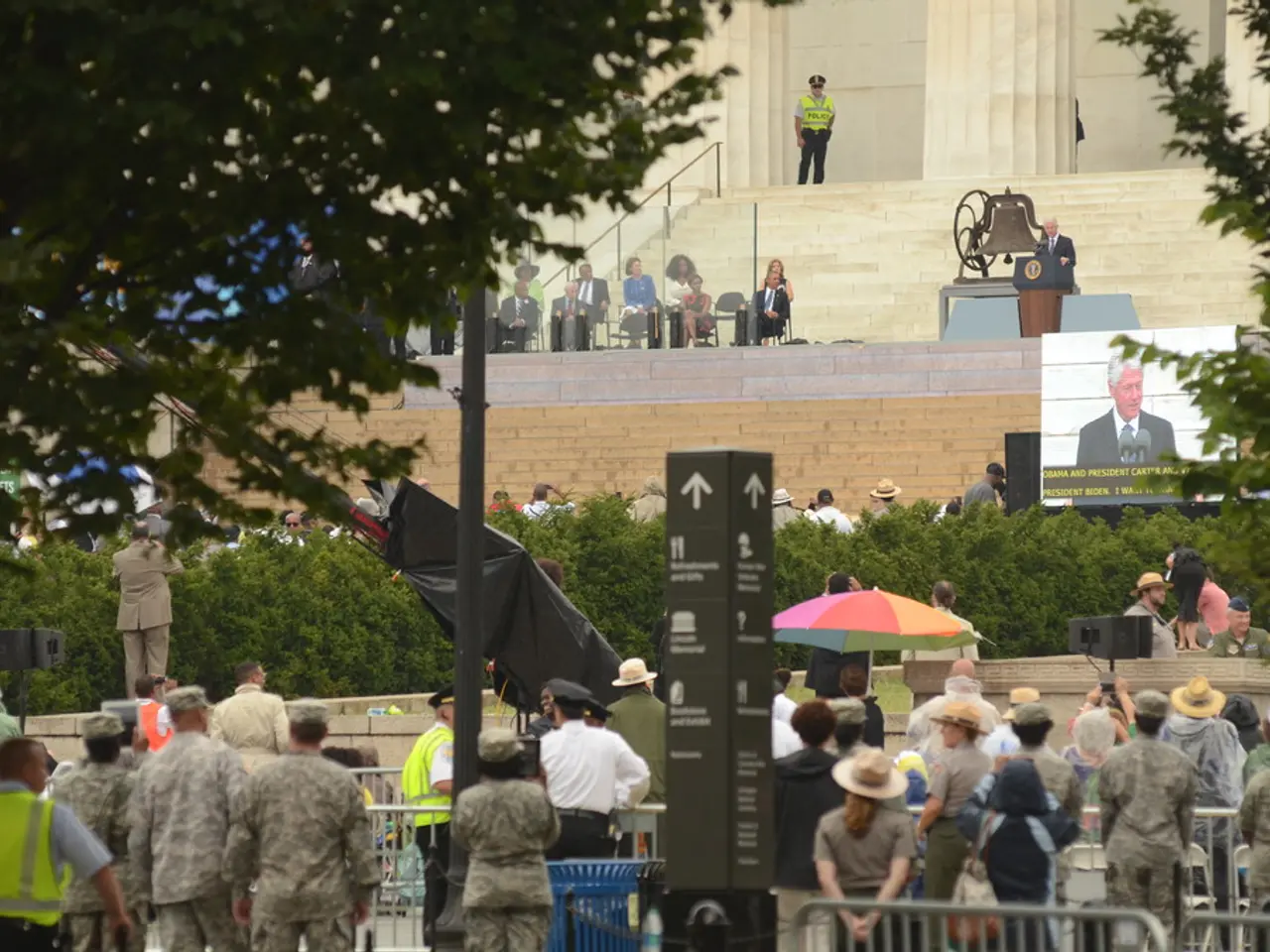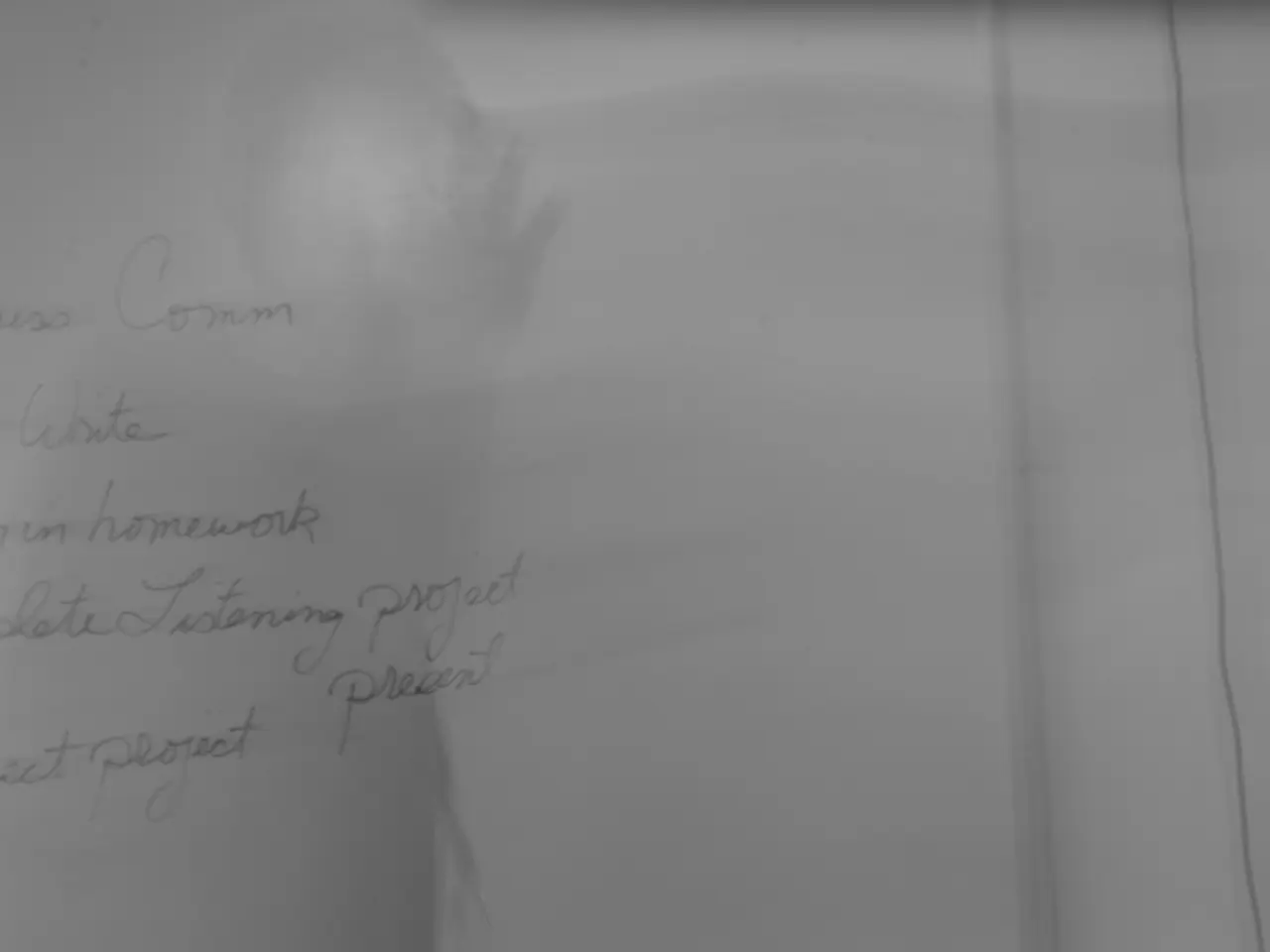Government-led job cuts occur in State Department revamping, affecting numerous employees
U.S. Department of State Undergoes Major Overhaul, Sparking Concerns Over Long-term Consequences
The U.S. Department of State is currently undergoing a significant overhaul, which officials claim is the largest in decades. Led by Secretary of State Marco Rubio, the restructuring has resulted in the elimination of 132 offices, a reduction of the Washington-based staff by approximately 15%, and the cutting of nearly 3,000 positions, including over 1,100 civil service workers and 246 foreign service officers [1][4].
While Rubio defends the move as necessary to speed up internal processes, citing layers of bureaucracy that slow decision-making, experts and impacted staff warn that losing experienced personnel may worsen diplomacy effectiveness rather than improve it [1]. Thomas Shannon, a former undersecretary of state in the previous Trump administration, shares these concerns, suggesting that the shake-up could have particular repercussions as the U.S. scales back on human rights and democracy promotion [2].
Shannon's comments imply that the overhaul could negatively impact the U.S. position in the global arena. He predicts that many talented individuals will be let go, likening the situation to a game of musical chairs [2]. His concerns center around the potential loss of expertise and talent within the State Department and USAID, which he believes could leave the U.S. at a disadvantage compared to global rivals like China [2].
The closure of USAID, a significant factor affecting U.S. influence abroad, is another point of contention. Shannon expresses concern about the loss of experts with critical language and cultural skills, suggesting that the overhaul could lead to a shortage of these skills within the U.S. foreign service [3]. This could have long-term consequences, as some employees have already taken early retirement, while hundreds more received layoff notices [3].
Ranking Member Jeanne Shaheen and other Democrats on the Senate Foreign Relations Committee have criticized the cuts. Former diplomats, represented by the American Academy of Diplomacy, have expressed similar concerns, accusing Rubio of gutting the department's institutional knowledge and calling the move "an act of vandalism" [4].
The potential long-term consequences of these reductions include a loss of expertise in critical fields, a reduction in overall diplomatic effectiveness, broader federal government impact, and political and labor unrest [1][4]. The loss of expertise in critical fields, such as AI teams despite AI being a stated priority of the administration, could undermine efforts in emerging technology diplomacy and result in losing institutional knowledge crucial for crafting effective international strategies [1].
Experts warn that the loss of experienced personnel may worsen diplomacy effectiveness rather than improve it [1]. This downsizing is part of a wider federal workforce reduction campaign with over 148,000 civil servants leaving government service in 2025, which risks weakening institutional capacity across federal agencies [3]. The layoffs have sparked confusion, outrage, and calls for legislative action to restore federal worker protections, suggesting possible ongoing internal disruption and morale problems that could harm long-term agency functionality [4].
In conclusion, while intended to cut costs and improve efficiency, these reductions risk diminishing the Department of State's ability to perform complex scientific, technological, and diplomatic functions critical to U.S. foreign policy. The potential adverse long-term national security and international relations consequences of these actions cannot be overlooked.
References: [1] "State Department Overhaul: What You Need to Know". The Hill. 2021. [2] "Former Undersecretary of State Warns of Potential Consequences of State Department Overhaul". Foreign Policy. 2021. [3] "State Department Cuts Spark Concerns Over Long-term Consequences". Politico. 2021. [4] "Former Diplomats Slam State Department Cuts". The Washington Post. 2021.
- The U.S. Department of State, amidst the largest overhaul in decades, has caused concerns about the long-term value of the department's institutional knowledge.
- The elimination of 132 offices and reduction in staff could lead to a severe credit deficit in terms of experience and expertise, potentially impacting diplomacy effectiveness.
- Critics accuse Secretary of State Marco Rubio of risking fire in diplomatic ventures by gutting the department's institutional knowledge, likening the situation to war-and-conflicts on a strategic level.
- ESG (Environmental, Social, and Governance) concerns are being raised over the potential adverse impacts of the department's overhaul on long-term sustainability and global standing.
- Politicians and experts are urging policy-and-legislation to protect interests and preserve the general-news-worthiness of the U.S. Department of State in light of the drastic cuts.
- Crime-and-justice may escalate as a result of the overhaul, with hundreds of foreign service officers leaving, creating a shortage of crucial language and cultural skills needed to combat global crime and maintain peace.






